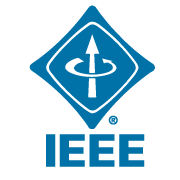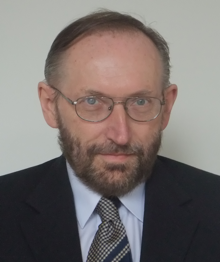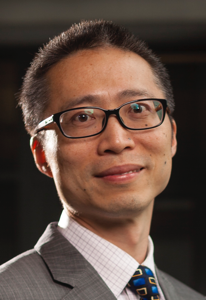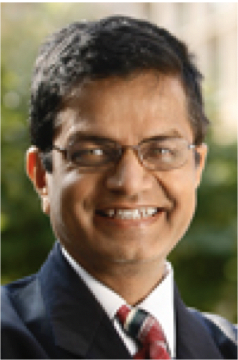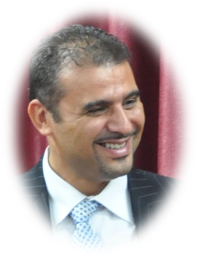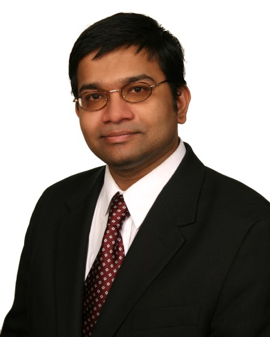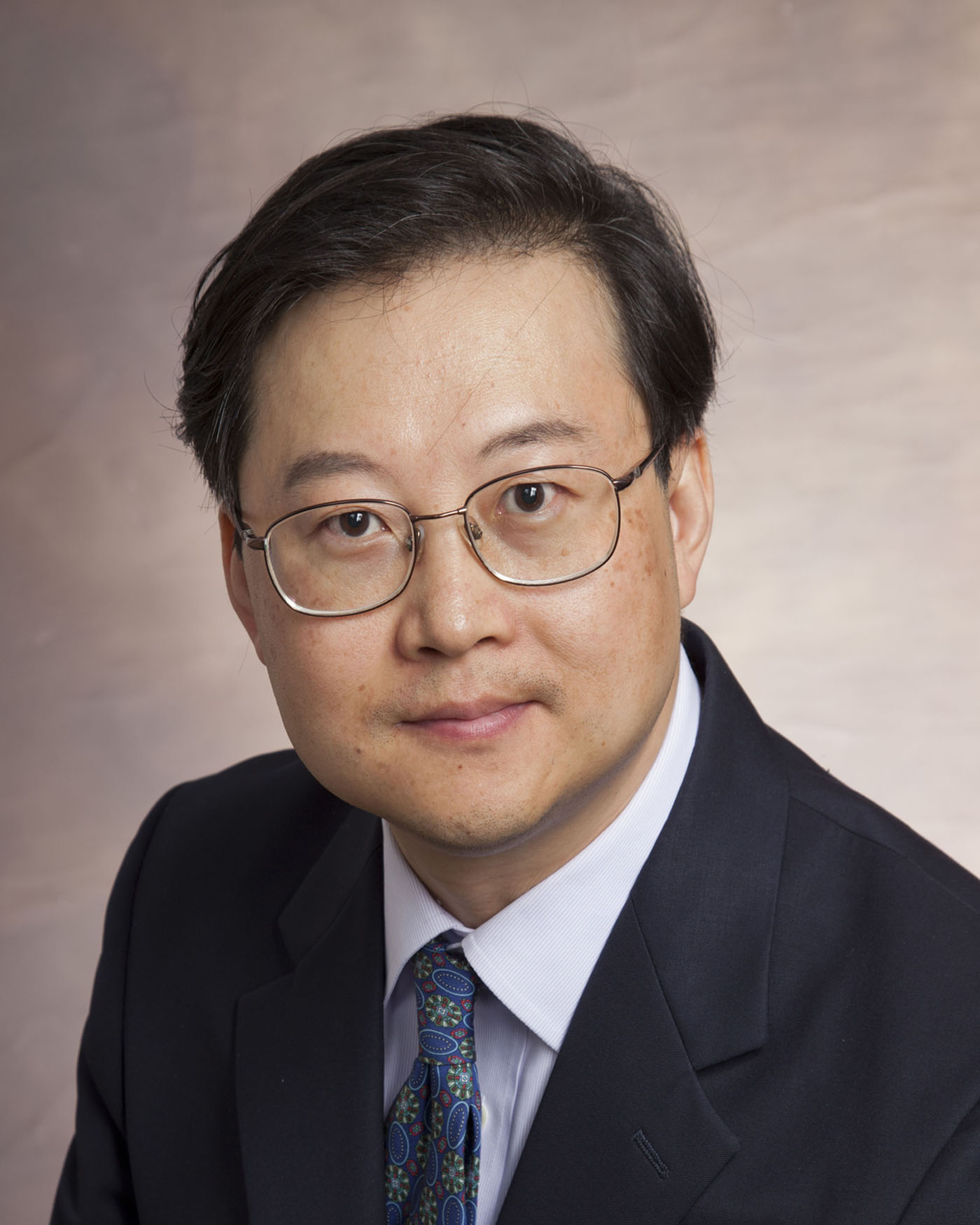|
Congress Keynotes |
|
Witold Pedrycz Abstract:
Data are omnipresent. We advocate that to efficiently transform data to knowledge to be used next in a slew of applications in system modeling, decision making, control, and classification, they need to be dealt with at a certain level of abstraction. This, in turn, gives rise to interpretable concepts. Information granules offer a conceptual and algorithmic setting where the data can be conceptualized in a sound and efficient manner. The level of abstraction itself is implied by the nature of the problem under discussion. Bio: Witold Pedrycz (IEEE Fellow, 1998) is Professor and Canada Research Chair (CRC) in Computational Intelligence in the Department of Electrical and Computer Engineering, University of Alberta, Edmonton, Canada. He is also with the Systems Research Institute of the Polish Academy of Sciences, Warsaw, Poland. In 2009 Dr. Pedrycz was elected a foreign member of the Polish Academy of Sciences. In 2012 he was elected a Fellow of the Royal Society of Canada. In 2007 he received a prestigious Norbert Wiener award from the IEEE Systems, Man, and Cybernetics Society. He is a recipient of the IEEE Canada Computer Engineering Medal, a Cajastur Prize for Soft Computing from the European Centre for Soft Computing, a Killam Prize, a Fuzzy Pioneer Award from the IEEE Computational Intelligence Society, and 2019 Meritorious Service Award from the IEEE Systems Man and Cybernetics Society. His main research directions involve Computational Intelligence, fuzzy modeling and Granular Computing, knowledge discovery and data science, pattern recognition, data science, knowledge-based neural networks, and control engineering. He has published numerous papers in these areas; the current h-index is 114 (Google Scholar) and 87 on the list top-h scientists for computer science and electronics http://www.guide2research.com/scientists/. He is also an author of 21 research monographs and edited volumes covering various aspects of Computational Intelligence, data mining, and Software Engineering.
Dr. Pedrycz is vigorously involved in editorial activities. He is an Editor-in-Chief of Information Sciences, Editor-in-Chief of WIREs Data Mining and Knowledge Discovery (Wiley), and Co-editor-in-Chief of Int. J. of Granular Computing (Springer) and J. of Data Information and Management (Springer). He serves on an Advisory Board of IEEE Transactions on Fuzzy Systems and is a member of a number of editorial boards of international journals.
Yang Xiang Abstract:
The digital transformation of our economy moves at the speed of trust. When we make a contactless payment or access government services online, we trust that the underlying transaction system protects our property, security, and privacy - there are safeguards in place. These safeguards, in the form of technological tools and government regulations, are increasingly under pressure. So, how can we harness the benefits of digital transformation and new technologies, while preserving security and trust? In my view, a long-term R&D effort in blockchain is fundamentally important. We need to collaborate with, and drive immediate outcomes for, business, government, and the community. In this talk, I will share my experience on the blockchain technologies that build and preserve trust in the digital transactions that underpin our economy and society. Effectiveness, efficiency, security, and privacy aspects of the blockchain architecture, systems, components, and mechanisms will be discussed. Bio: Professor Yang Xiang received his PhD in Computer Science from Deakin University, Australia. He is currently a full professor and the Dean of Digital Research & Innovation Capability Platform, Swinburne University of Technology, Australia. His research interests include cyber security, which covers network and system security, data analytics, distributed systems, and networking. He is also leading the Blockchain initiatives at Swinburne. In the past 20 years, he has published more than 300 research papers in many international journals and conferences. He is the Editor-in-Chief of the SpringerBriefs on Cyber Security Systems and Networks. He serves as the Associate Editor of IEEE Transactions on Dependable and Secure Computing, IEEE Internet of Things Journal, and ACM Computing Surveys. He served as the Associate Editor of IEEE Transactions on Computers and IEEE Transactions on Parallel and Distributed Systems. He is a Fellow of the IEEE. Raj Jain Abstract:
Blockchains has found numerous applications in Fintech, Supply chains, and contracts because it is an ideal distributed consensus where all nodes agree on the validity of transactions in a block without needing a central trusted party. The consensus is binary - agree or disagree - True or False. In this era of big data, we need to move blockchains beyond data storage to provide knowledge. In the real world, there are many situations in which various participants may not fully agree, and their opinions may be probabilistic, leading to probabilistic agreements. In this talk, Prof. Jain will present recent extensions using AI that allow blockchains to be used for group decisions that may not be binary. These extensions enable blockchains to be used for group decision making and risk management when the group sizes are large, and group members may want to remain anonymous. In particular, Prof. Jain will describe numerous use cases of this idea. Such situations frequently arise in network security and risky investments. Bio: Raj Jain is currently the Barbara J. and Jerome R. Cox, Jr., Professor of Computer Science and Engineering at Washington University in St. Louis. Dr. Jain is a Life Fellow of IEEE, a Fellow of ACM, a Fellow of AAAS, a recipient of the 2018 James B. Eads Award from St. Louis Academy of Science, 2017 ACM SIGCOMM Life-Time Achievement Award. Previously, he was one of the Co-founders of Nayna Networks, Inc., a Senior Consulting Engineer at Digital Equipment Corporation in Littleton, Mass, and then a professor of Computer and Information Sciences at Ohio State University in Columbus, Ohio. With 34,000+ citations, according to Google Scholar, he is one of the highly cited authors in computer science. Further information is at http://www.cse.wustl.edu/~jain/.
Abdulmotaleb El Saddik Abstract:
A digital twin is a digital replication of a living or non-living physical entity. By bridging the physical and the virtual worlds, data is transmitted seamlessly allowing the virtual entity to exist simultaneously with the physical entity. A digital twin facilitates the means to monitor, understand, and optimize the functions of the physical entity and provides continuous feedback to improve quality of life and wellbeing of citizens in smart cities. In this talk, we will discuss the convergence of multimedia technologies (AR/VR, AI, IoT, BigMM Data and 5G-Tactile Internet) towards the digital twin for health care. We will conclude by describing the challenges and the open research questions. Bio: Abdulmotaleb El Saddik is Distinguished Professor and University Research Chair in the School of Electrical Engineering and Computer Science at the University of Ottawa. He completed his Dipl-Ing. and Dr.-Ing. from the Technische Universität Darmstadt, Germany. He is the director of the Multimedia Communications research Laboratory and the Medical Devices Innovation Institute.
Sudip Misra Abstract:
The introduction of IoT in healthcare has led to many advancements and added new dimensions to the traditional healthcare systems. The interactions between patients and doctors have moved beyond physical visits with the integration of IoT in the healthcare domain. Digital storage of medical data, remote health monitoring, and historical data analysis are some of the significant developments that have been accomplished in the area of healthcare. Wearable devices have played a vital role and have proved to be a game-changer in embedding IoT in healthcare. In the present scenario, wearables have witnessed growing popularity and have become a part of people's lifestyles. Wearables have enabled continuous monitoring of physiological parameters, both locally and remotely. Monitoring the elderly, children, and patients with chronic illnesses have especially benefitted with the availability of wearables. In addition to this, more complex systems for the diagnosis of diseases provide better insights into the patient's condition, which helps in early detection, faster response time, and targeted treatment. IoT-enabled healthcare connects patients from less accessible rural areas to remote healthcare professionals. Bio: Sudip Misra is a Professor and Abdul Kalam Technology Innovation National Fellow in the Department of Computer Science and Engineering at the Indian Institute of Technology Kharagpur. He received his Ph.D. degree in Computer Science from Carleton University, in Ottawa, Canada. His current research interests include Wireless Sensor Networks and Internet of Things. Professor Misra has published over 350 scholarly research papers and 12 books. He has won nine research paper awards in different conferences. He was awarded the IEEE ComSoc Asia Pacific Outstanding Young Researcher Award at IEEE GLOBECOM 2012, California, USA. He was also the recipient of several academic awards and fellowships such as the Faculty Excellence Award (IIT Kharagpur), Young Scientist Award (National Academy of Sciences, India), Young Systems Scientist Award (Systems Society of India), Young Engineers Award (Institution of Engineers, India), (Canadian) Governor General’s Academic Gold Medal at Carleton University, the University Outstanding Graduate Student Award in the Doctoral level at Carleton University and the National Academy of Sciences, India – Swarna Jayanti Puraskar (Golden Jubilee Award), Samsung Innovation Awards-2014 at IIT Kharagpur, IETE-Biman Behari Sen Memorial Award-2014, and the Careers360 Outstanding Faculty Award in Computer Science for the year 2018 from the Honourable Minister for Human Resource Development (MHRD) of India. Thrice consecutively he was the recipient of the IEEE Systems Journal Best Paper Award in 2018, 2019, and 2020. He was awarded the Canadian Government’s prestigious NSERC Post Doctoral Fellowship and the Alexander von Humboldt Research Fellowship in Germany. His team received the GYTI Award 2018 in the hands of the President of India for socially relevant innovations. Dr. Misra has been serving as the Associate Editor of different journals such as the IEEE Transactions on Mobile Computing, IEEE Transactions on Vehicular Technology, IEEE Transactions on Sustainable Computing, IEEE Network, and IEEE Systems Journal. He is the Fellow of the National Academy of Sciences (NASI), India, Indian National Academy of Engineering (INAE), the Institution of Engineering and Technology (IET), UK, British Computer Society (BCS), UK, Royal Society of Public Health (RSPH), UK, and the Institution of Electronics and Telecommunications Engineering (IETE), India. Professor Misra is the distinguished lecturer of the IEEE Communications Society. He is the Director and Co-Founder of the IoT startup, SensorDrops Networks Private Limited (http://www.sensordropsnetworks.com). Further details about him are available at http://cse.iitkgp.ac.in/~smisra/.
Tom Hou Abstract:
A holy grail in optimization is to solve large-scale complex optimization problem (e.g., mixed integer nonlinear program (MINLP)) in real time. Such type of optimization problems is very common in wireless networks, particularly in resource allocation. Traditional, optimal (or near-optimal) solutions to these problems would take prohibitive amount of time and cannot be used as practical solutions in the field to meet real-time requirement. At best, these solutions can only be used as benchmarks to measure the performance of fast heuristics, whose performance may either be severely compromised or can hardly offer any performance guarantee. Recently, in our research on designing a proportional-fair (PF) scheduler for 5G NR, we found that the state-of-the-art GPU can be exploited to offer near-optimal solution to complex optimization problems in real time (e.g., 100 µs time scale). The key ideas in our solution design include (i) decomposing a large-scale complex optimization problem into a massive number of small and independent sub-problems; (ii) selecting a subset of sub-problems from the most promising search space through intensification and random sampling; and (iii) fitting the selected subset of problems into GPU processing cores for very simple computation. In this talk, I will share our experience in this research and show the design of GPF – a GPU-based proportional fair (PF) scheduler that can meet the ∼100 µs time requirement. By implementing our proposed GPF on an off-the-shelf NVIDIA Tesla V100 GPU, we show that GPF is able to achieve near-optimal performance under 100 µs. Our experience demonstrates that a GPU-based solution has the potential to address the grand challenge of solving complex optimization problems in wireless networks in real time.
Bio:Tom Hou is the Bradley Distinguished Professor of Electrical and Computer Engineering at Virginia Tech, USA. He received his Ph.D. degree from NYU Tandon School of Engineering in 1998. His current research has been focused on studying and developing solutions to complex science and engineering problems arising from wireless and mobile networks. Over the years, he and his research team have been studying performance bottlenecks in different network systems and have developed innovative solutions to circumvent these bottlenecks and improve performance envelops. He and his team have successfully developed some powerful optimization techniques to advance throughput, delay, and energy performance limits across the layers of network protocol stack. Currently, he is leading his team to address real-time (on the scale of sub-millisecond or less) optimal solutions for next generation communications networks (e.g., 5G) and CPS/IoT systems. He is also interested in wireless security and privacy. He has published extensively in IEEE and ACM transactions/journals and top-tier IEEE/ACM conferences. He received eight best paper awards from IEEE and ACM. He is a co-editor of a graduate textbook entitled Cognitive Radio Communications and Networks: Principles and Practices (Academic Press/Elsevier, 2010). This book was listed as one of the Best Readings on Cognitive Radio by IEEE Communications Society. His second graduate textbook was entitled Applied Optimization Methods for Wireless Networks (Cambridge University Press in May 2014). This book was the first of its kind in terms of offering a comprehensive toolbox to solve complex optimization problems in wireless networks. He was named an IEEE Fellow in 2014 for "contributions to modeling and optimization of wireless networks" |

Organizations:
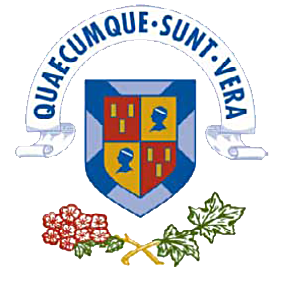 |
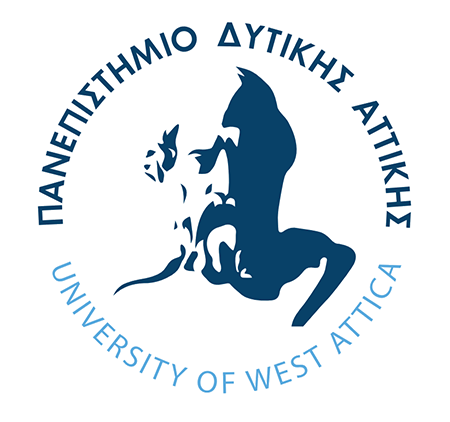 |
|---|
Copyright@ Cybermatics 2020. Created and Maintained by Cybermatics 2020 Web Team.

